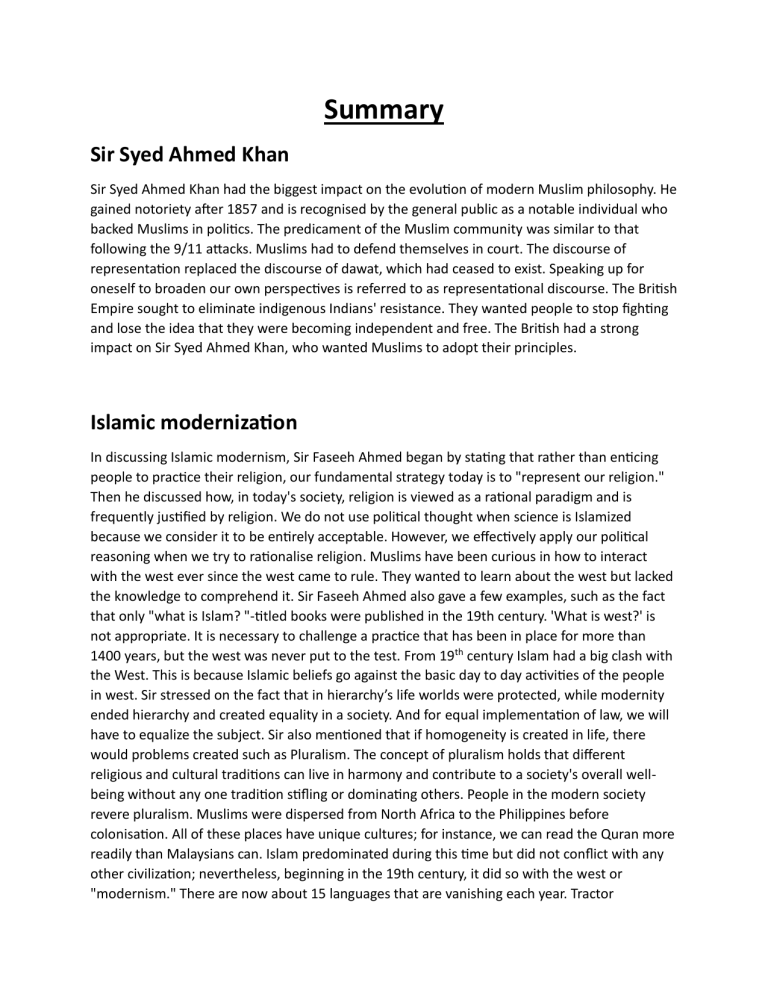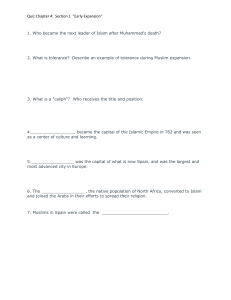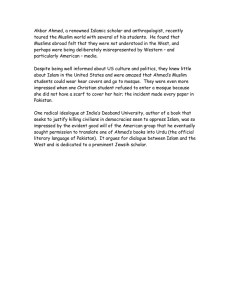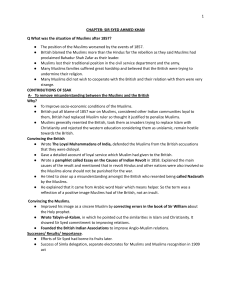
Summary Sir Syed Ahmed Khan Sir Syed Ahmed Khan had the biggest impact on the evolution of modern Muslim philosophy. He gained notoriety after 1857 and is recognised by the general public as a notable individual who backed Muslims in politics. The predicament of the Muslim community was similar to that following the 9/11 attacks. Muslims had to defend themselves in court. The discourse of representation replaced the discourse of dawat, which had ceased to exist. Speaking up for oneself to broaden our own perspectives is referred to as representational discourse. The British Empire sought to eliminate indigenous Indians' resistance. They wanted people to stop fighting and lose the idea that they were becoming independent and free. The British had a strong impact on Sir Syed Ahmed Khan, who wanted Muslims to adopt their principles. Islamic modernization In discussing Islamic modernism, Sir Faseeh Ahmed began by stating that rather than enticing people to practice their religion, our fundamental strategy today is to "represent our religion." Then he discussed how, in today's society, religion is viewed as a rational paradigm and is frequently justified by religion. We do not use political thought when science is Islamized because we consider it to be entirely acceptable. However, we effectively apply our political reasoning when we try to rationalise religion. Muslims have been curious in how to interact with the west ever since the west came to rule. They wanted to learn about the west but lacked the knowledge to comprehend it. Sir Faseeh Ahmed also gave a few examples, such as the fact that only "what is Islam? "-titled books were published in the 19th century. 'What is west?' is not appropriate. It is necessary to challenge a practice that has been in place for more than 1400 years, but the west was never put to the test. From 19th century Islam had a big clash with the West. This is because Islamic beliefs go against the basic day to day activities of the people in west. Sir stressed on the fact that in hierarchy’s life worlds were protected, while modernity ended hierarchy and created equality in a society. And for equal implementation of law, we will have to equalize the subject. Sir also mentioned that if homogeneity is created in life, there would problems created such as Pluralism. The concept of pluralism holds that different religious and cultural traditions can live in harmony and contribute to a society's overall wellbeing without any one tradition stifling or dominating others. People in the modern society revere pluralism. Muslims were dispersed from North Africa to the Philippines before colonisation. All of these places have unique cultures; for instance, we can read the Quran more readily than Malaysians can. Islam predominated during this time but did not conflict with any other civilization; nevertheless, beginning in the 19th century, it did so with the west or "modernism." There are now about 15 languages that are vanishing each year. Tractor technology has led to the diversification or disappearance of farming cultures throughout the world. Islam in the Age of Social Media Sir Faseeh Ahmed discussed that Zakat is not supposed to be paid to Syed's according to a traditional interpretation of Islam. It also suggests prioritising your connections with your closest neighbours above those with your family members and, finally, with visitors. You must equalize the subject through administrative steps to ensure equal application of legislation. Social media got its origins in the television industry. When the televised content was generally acknowledged, it had an effect on religious teachings and meanings. People anticipated an immediate assessment of the television industry's growth by Islamic clerics since it could have grave repercussions. Religious leaders began to disassociate themselves from these mediums over time. Performers and celebrities were first introduced on television. Online relationships become more significant to people than physical interactions because of social media's ability to draw attention away from reality. Communication speed is more important to people than communication quality. They choose to change on social media platforms rather than as a society. Additionally, they only receive information from various social media platforms and are unaware of what is happening in their immediate surroundings. Religious doctrines are not resolved but rather expedited. Additionally, while everyone has access to social media, only a small number of people have access to corporate media.




